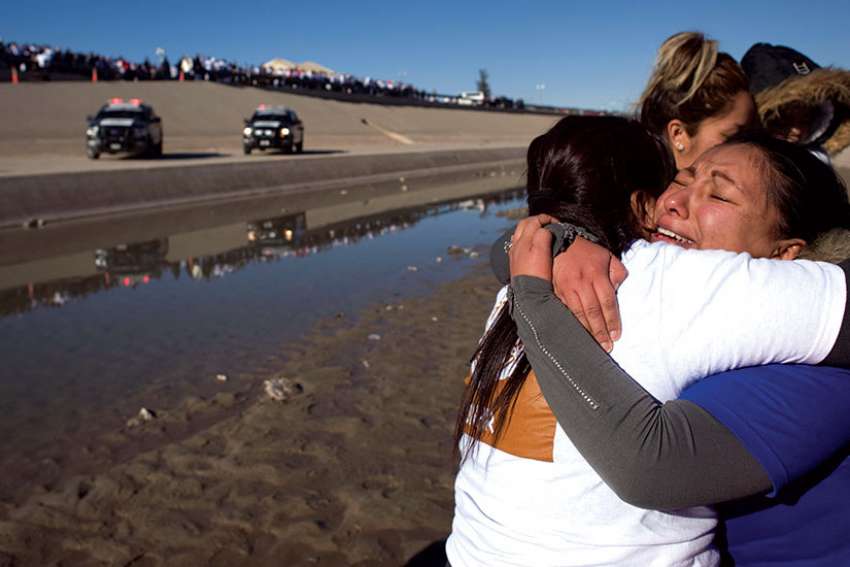“It appears things will get worse for refugees (in the U.S.)” said Scalabrinian priest Fr. Vincenzo Rosato. “The whole situation is creating a lot of uncertainty.”
The Scalabrini order is dedicated to serving migrants and refugees world-wide and runs safe houses for refugees along several borders, including the U.S.-Mexican border. The forces that have driven about 300 refugee claimants to cross into Manitoba from Minnesota and North Dakota since last April, including more than 40 who have arrived in Emerson, Man., in just two weeks, may mean that the Scalabrinis have to set up similar safe houses near the Canada-U.S. border, Rosato said.
“This could become a real exodus and a new phenomenon,” he said. “If we have to provide for the immediate needs, I think we would be ready.”
Down at the U.S.-Mexican border, migrants have begun talking about the Canadian option, said Joanna Williams, director of education and advocacy for the Jesuit-sponsored Kino Border Initiative in Nogales, Arizona.
“I can’t say that we have first-hand experience with people actually making that decision,” she said. “I would understand if they did.”
Refugees at the U.S.-Mexican border are aware of Prime Minister Justin Trudeau’s statements of welcome for refugees, said Williams.
“To those fleeing persecution, terror & war, Canadians will welcome you, regardless of your faith. Diversity is our strength #WelcomeToCanada” Trudeau tweeted Jan. 28, just after a series of executive orders suspended all refugee arrivals in the U.S. and banned travel from seven Muslim-majority nations.
Those executive orders have since been challenged in court and held back.
Putting undocumented migrants in jails, setting immigration bonds as high as $40,000 and other ways of discouraging refugees from making claims in the U.S. have become more common, including “just turning them away altogether in violation of international law,” said Williams.
But Williams balks at the idea that the U.S. is no longer a safe third country for refugees whose claims might be accepted in Canada.
“Asylum isn’t necessarily accessible in the U.S., but I wouldn’t say that the U.S. is not a safe third country. That would seem a little extreme to us,” she said.
The Jesuit Refugee Service in the U.S. also rejects the idea that America under the Trump administration is unsafe.
“In the aftermath of the executive orders, there has been a huge groundswell of support for refugees,” said JRS North America director of advocacy Giulia McPherson.
JRS Canada director Norbert Piché fully supports the Canadian Council for Refugees’ position that the U.S. is not safe for all refugees. Supported by the Canadian Council of Churches and Amnesty International Canada, the Canadian Council for Refugees has called for Canada to scrap or at least suspend its Safe Third Country agreement with the United States.
“It’s even less safe than it was before,” Piché said. “For reasons that are quite plain to see, refugees don’t feel safe in the States anymore.”
Canadians should be prepared for an increase in asylum seekers, but the increase won’t be dramatic, said Piché.
“It’s very hard to get here anyway. I don’t think we can expect a flood of people. I think we can expect more, but not a flood of people just because of our geography. It’s just more difficult to get here.”


